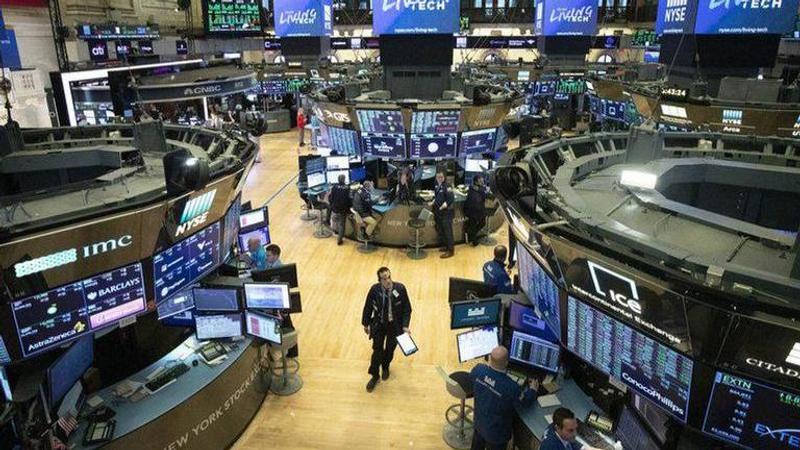Published 06:56 IST, March 16th 2020
Stock futures sink after rate cut, new virus restrictions
Stock markets are set for another week of turbulent trading as U.S. index futures fell sharply after the Federal Reserve slashed interest rates and more companies and governments took action over the weekend to shut down European and American society.

Stock markets are set for another week of turbulent trading as U.S. index futures fell sharply after the Federal Reserve slashed interest rates and more companies and governments took action over the weekend to shut down European and American society.
Futures for the S&P 500 and the Dow Jones Industrial Average fell 5% Sunday night, triggering a halt in trading. The price of oil fell about 5% while gold gained about 2%.
Stocks are coming off a dizzying week that saw the Dow twice fall by more than 2,000 points and also record it's biggest point gain every — 1,985 points on Friday. The bull market that began in 2009 in the depths of the financial crisis came to an end. Europe markets suffered similarly sharp declines.
The Fed cut its key rate by a full percentage point — to a range between zero and 0.25% — and said it would keep it there until it feels confident that the economy can survive a sudden near-shutdown of economic activity in the United States. The surprise announcement signaled the Fed's concern that the viral outbreak will depress economic growth in coming months and that it is prepared to do whatever it can counter the risks.
The fact the Fed made its move before a meeting scheduled for mid-week indicated the Fed policymakers felt they needed to act immediately to shore up financial markets and investors' confidence. Although U.S. stocks did recoup some of last week's losses with a big rally on Friday, most market watchers expected to see more volatility ahead with the number of coronavirus cases still expected to rise in the U.S. and more industries facing a downturn in their business.
American Airlines said over the weekend that it was sharply cutting international flights. Walmart is limiting store hours to ensure they can keep sought-after items such as hand sanitizer in stock, while other retailers such as Urban Outfitters are closing stores altogether. Starbucks will prohibit customers from sitting down for coffee in its stores and will close some locations in large gathering places such as malls and campuses.
At the same time the U.S. and other countries further restricted travel and took other actions certain to curtail economic activity.
Besides cutting rates, the Fed will buy at least $500 billion of Treasury securities and at least $200 billion of mortgage-backed securities. This amounts to an effort to ease market disruptions that have made it harder for banks and large investors to sell Treasuries as well as to keep longer-term rates borrowing rates down.
The magnitude of the central bank moves indicated to some analysts that Fed Chair Jerome Powell and other members of the Fed were worried about the health of the financial system.
“The Fed’s actions were very bold and it does appear to have spooked the markets,” said Nate Thooft, head of global asset allocation at Manulife Investment Management. “There was an expectation they would do something soon but this is a lot at once and it sends the message they are very worried about growth prospects and credit issues.”
Updated 06:56 IST, March 16th 2020




